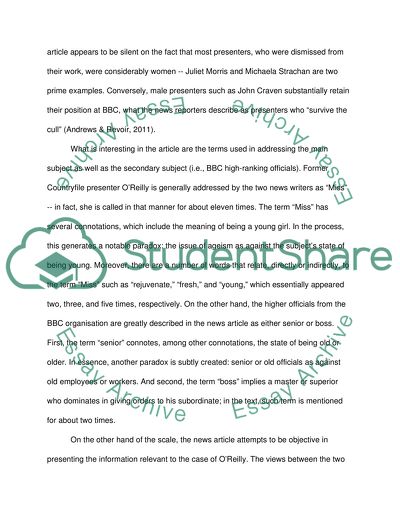Cite this document
(“Diversity in the British Mass Media: Victory Against Ageism Essay”, n.d.)
Retrieved from https://studentshare.org/social-science/1405510-diversity-in-the-british-mass-media
Retrieved from https://studentshare.org/social-science/1405510-diversity-in-the-british-mass-media
(Diversity in the British Mass Media: Victory Against Ageism Essay)
https://studentshare.org/social-science/1405510-diversity-in-the-british-mass-media.
https://studentshare.org/social-science/1405510-diversity-in-the-british-mass-media.
“Diversity in the British Mass Media: Victory Against Ageism Essay”, n.d. https://studentshare.org/social-science/1405510-diversity-in-the-british-mass-media.


